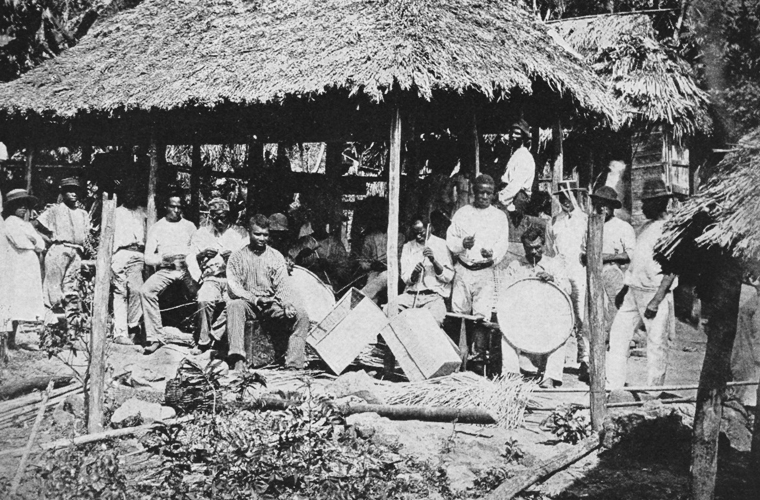The Caribs, also known as the Kalinago, are an indigenous people of the Caribbean. They are believed to have originally migrated from the Orinoco River basin in South America to the Caribbean islands around 1200 AD. The Caribs were known for their seafaring skills and were skilled navigators, which allowed them to settle in various islands across the Caribbean. The Caribs were a matrilineal society, meaning that descent and inheritance were traced through the female line. Women held significant power within Carib society and played a key role in decision-making processes. The Caribs were also known for their skilled craftsmanship, particularly in the production of pottery and woven items.
The arrival of European colonizers in the late 15th century had a significant impact on the Carib population. The colonizers brought with them diseases to which the Caribs had no immunity, leading to a drastic decline in their population. Additionally, the European colonizers sought to exploit the resources of the Caribbean islands, leading to violent conflicts with the indigenous Caribs. By the 17th century, the Carib population had been greatly reduced, and many of the surviving Caribs were forced to relocate to the less desirable islands of the Caribbean. The European colonizers also enslaved many Caribs, further contributing to the decline of their population.






Today, the descendants of the Caribs continue to inhabit certain islands in the Caribbean, particularly Dominica, Saint Vincent, and Trinidad and Tobago. Efforts have been made to preserve and revitalize Carib culture and traditions, including the promotion of traditional crafts and the preservation of the Carib language. The Caribs have also been actively involved in advocating for their rights as indigenous peoples, including land rights and cultural preservation. Organizations such as the Carib Territory Council in Dominica and the Santa Rosa First Peoples Community in Trinidad and Tobago have played a significant role in representing and advocating for the interests of the Carib people.
Despite centuries of adversity and marginalization, the Caribs have demonstrated resilience and perseverance in preserving their cultural heritage and identity. Their contributions to Caribbean history and culture continue to be recognized and celebrated, and efforts to support and empower the Carib people in reclaiming their heritage are ongoing.
In conclusion, the Caribs are an indigenous people with a rich history and cultural legacy that continues to endure despite centuries of challenges. Their contributions to the Caribbean region are significant, and efforts to preserve and revitalize their culture are essential in ensuring that their legacy continues to thrive for future generations.

